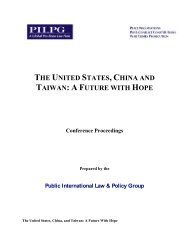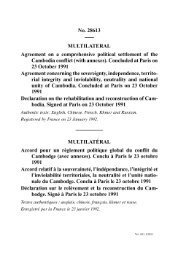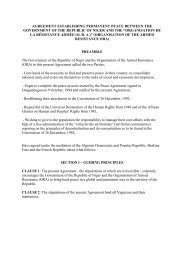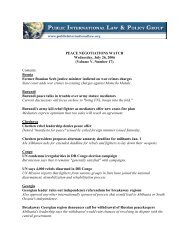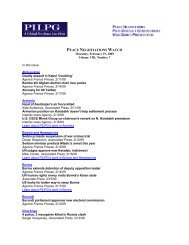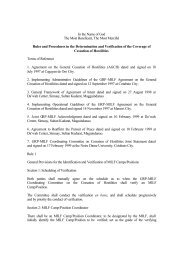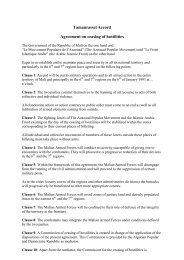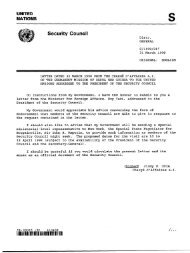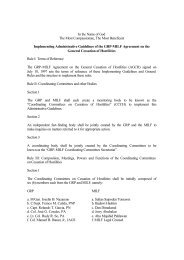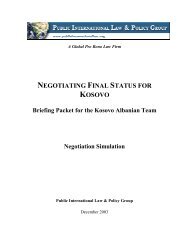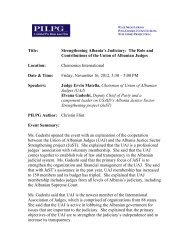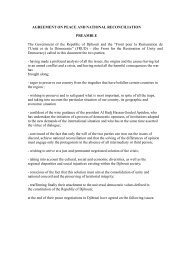Create successful ePaper yourself
Turn your PDF publications into a flip-book with our unique Google optimized e-Paper software.
13<br />
The International Mission<br />
Michael Steiner, a German diplomat with extensive experience in the Balkans, took over<br />
as the head of the UN mission in Kosovo in February. Kosovo Albanians welcomed<br />
Steiner, whose initial active engagement to resolve the government crisis and public<br />
outreach through such actions as a visit to Pristina's oldest high school were seen as a<br />
refreshing contrast with the reclusive style of Steiner's predecessor Haekkerup. In his<br />
first speech to the people of Kosovo Steiner described his priorities as the economy,<br />
crime, and justice. Most Kosovars would agree with those priorities and all Kosovars I<br />
spoke to thought the speech was excellent.<br />
Steiner is well aware that his initial honeymoon with the people of Kosovo will inevitably<br />
come to an end and that there will be difficult times ahead. His speech was silent on the<br />
issue of Kosovo's future status and said little on how much power he intended to allow<br />
the people of Kosovo in establishing new, self-governing institutions, areas where<br />
disputes with the Kosovo Albanian leaders could quickly arise. Steiner will also be<br />
judged on how he delivers on these and other issues which affect the daily lives of<br />
Kosovo citizens, such as local services and utilities, where many Kosovars believe the<br />
international mission has conspicuously failed to deliver, despite the passage of almost<br />
three years effort and the expenditure of hundreds of millions of dollars.<br />
Steiner inherits an international mission in Kosovo which has some important successes<br />
to its credit but which—almost three years after the end of the war—continues to suffer<br />
from the absence of any strategy for Kosovo's future. Successes are sometimes achieved,<br />
yet in Kosovo's complex international environment, where even routine actions often<br />
require forging a consensus reaching up to the Security Council, forward movement is<br />
generally slow and spasmodic.<br />
The fact that there is any progress at all is a testimony to the dedication of some members<br />
of the international mission. Unfortunately, however, there is also an impression—<br />
impossible by its nature to quantify or fully verify—that three years after the war the<br />
character of the international mission is changing. Many of the top notch international<br />
civil servants found in the first wave of the Kosovo mission, attracted by the challenge of<br />
serving at the epicenter of one of the world's most active crisis areas and dedicated to<br />
making an impact, have moved on. Their replacements are sometimes persons turned up<br />
routinely by international bureaucracies, often with little interest in the area or its people.<br />
There is also, moreover, a growing sense of "familiarity breeds contempt" on both sides<br />
as well as the absence of historical memory among the internationals. Few members of<br />
the current international mission witnessed Serb ethnic cleansing at first hand. For most<br />
internationals, the current reality is the daily frustrations of dealing with the majority<br />
Albanian population, which often has very different views of what Kosovo's reality is or<br />
ought to be. This has given rise to attitudes of skepticism among many members of the<br />
international mission that sometimes border on contempt—attitudes which are often<br />
reciprocated by the local Albanian population. As one Western diplomat assured me,



